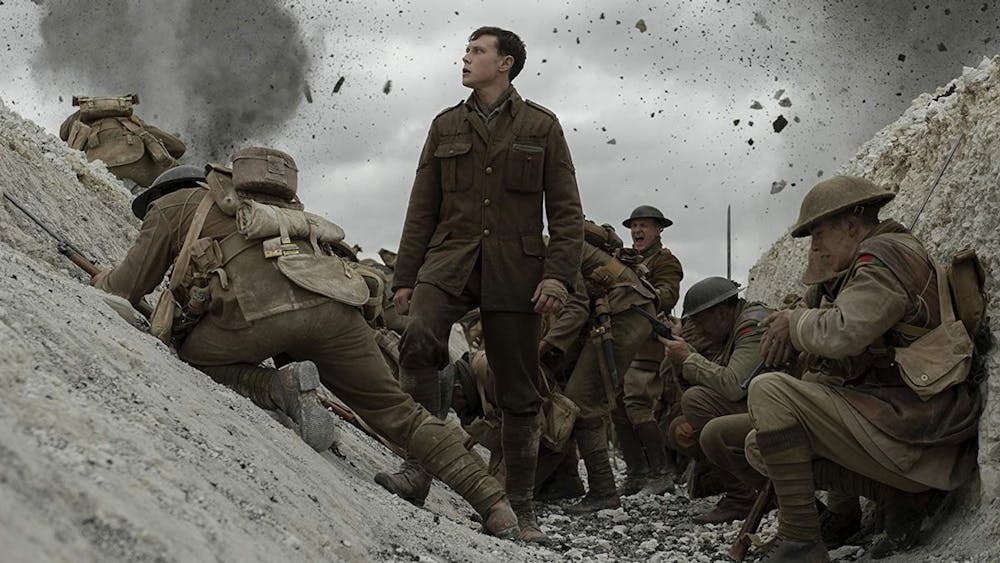Riddled with grisly imagery and tense sequencing, Sam Mendes’ 1917 captures the intensity and isolation of war all while telling the tale of two young British soldiers on a deadly mission.
Set along the Western Front during World War I, 1917 follows Lance Corporal Blake (Dean-Charles Chapman) and Lance Corporal Schofield (George MacKay) as they’re assigned to deliver a message that will save 1,600 soldiers from walking into a trap. Battling both the clock and enemy lines, the two are thrust into the throes of isolation, paranoia and combat.
With a fairly simple plot, 1917 doesn’t give into the stereotypical thrills and tropes of war films. Yes, there’s explosions, gruesome imagery, combat and more, but Mendes uses it to shine a light on the atmosphere of war rather than cheap thrills.
Showcasing the atmosphere of war is continuous throughout the film. Filmed to look as though it was shot in one take, Mendes and cinematographer Roger Deakins allowed the audience to feel like they were right there with Blake and Schofield. Capturing the vast landscapes of France, the film is starkly beautiful to look at despite the carnage surrounding the central characters.
Above all, the one-take feel of the film provides tension for audiences. Though the film itself doesn’t include too many actual battle or combat scenes, there’s a constant, edge-of-your-seat feel to the journey viewers are brought on. The tension is only amplified by the film’s sparse dialogue, as well.
Faced with what is basically a suicide mission, Schofield and Blake are left to their own devices. While there’s usually a camaraderie and brotherhood between platoons, the two are isolated and ultimately alone as they make their way through the Western Front.
There are times one could argue the plot feels rushed because of the looming feeling something bad is going to happen, but it’s more so Mendes’ meticulous decision to show the chaos of war and time sensitivity of the mission. In fact, the film is centered more around the journey to deliver the message, rather than developing characters to their fullest extent.
It’s fair to say that 1917 succeeds more in the technical side of things rather than the story. Mendes and screenwriter Krysty Wilson-Cairns rope you in with their script, but it’s the stark cinematography, acute camera work and crisp directing from Mendes that set the film apart from other war films.
Rating: 4/5






